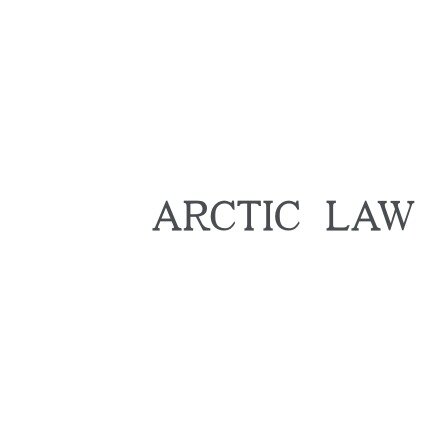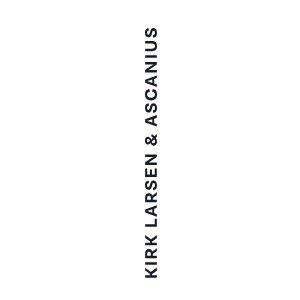Best Antitrust Litigation Lawyers in Greenland
Share your needs with us, get contacted by law firms.
Free. Takes 2 min.
Or refine your search by selecting a city:
List of the best lawyers in Greenland
About Antitrust Litigation Law in Greenland
Antitrust litigation in Greenland involves cases and legal actions that address competition law violations. Antitrust, also known as competition law, is designed to ensure fair competition in the marketplace and to prevent monopolistic behaviors, such as price-fixing, abuse of a dominant position, or unlawful mergers. Due to Greenland's status as an autonomous territory within the Kingdom of Denmark, Greenlandic antitrust law is based on local regulations but also draws from Danish and European Union standards. This unique legal landscape is tailored to the specific economic and market conditions in Greenland, given the limited market size and specialized industries such as fisheries and mining.
Why You May Need a Lawyer
Antitrust litigation is a highly specialized area of law that can be complex and challenging to navigate without professional assistance. Situations where you might need a lawyer include:
- Being investigated by competition authorities for suspected antitrust violations
- Entering into or exiting agreements with competitors or suppliers
- Facing allegations of price-fixing or bid-rigging
- Dealing with disputes over market dominance or abuse of a dominant position
- Challenging or defending against mergers and acquisitions that may affect competition
- Pursuing damages for anti-competitive behavior from another business
- Ensuring compliance with Greenlandic, Danish, and potentially EU competition law requirements
- Responding to dawn raids or requests for documentation from regulatory authorities
Due to the high stakes involved in such legal matters, professional advice is essential to protect your rights, minimize risks, and achieve the best possible outcome.
Local Laws Overview
Greenland's antitrust or competition law framework is primarily governed by domestic legislation, which reflects both local needs and influences from Denmark and the European Union. The main aspects include:
- Prohibition of Anti-Competitive Agreements - Agreements between businesses that restrict competition, such as price-fixing or market sharing, are generally illegal.
- Abuse of Dominant Position - Companies with significant market power are prohibited from abusing their position to eliminate or restrict competition.
- Merger Control - Mergers or acquisitions that may hinder competition must be notified to the relevant authorities and may be subject to investigation or even blocked.
- Leniency Programs - In some cases, companies that cooperate with investigating authorities may qualify for leniency or reduced penalties.
- Jurisdictional Nuances - Given Greenland's economic size, cases are often reviewed with consideration to market realities unique to the territory.
Enforcement is primarily handled by local authorities, in cooperation with Danish or European authorities for matters with cross-border dimensions.
Frequently Asked Questions
What constitutes an antitrust violation in Greenland?
Activities like price-fixing, bid-rigging, market sharing, and abusing a dominant market position are common antitrust violations. Each situation is assessed under Greenlandic law, potentially informed by Danish and EU requirements.
Who enforces antitrust law in Greenland?
Local Greenlandic authorities have primary enforcement roles. For complex or cross-border cases, Danish or European bodies may become involved.
How do I know if my business is under investigation?
Authorities may contact your business directly, request documents, or conduct onsite inspections. Immediate legal counsel is advised if you receive any such communication.
What penalties can result from antitrust violations?
Penalties can include fines, orders to cease certain activities, changes to business practices, or-if severe-criminal sanctions. Damages claims from affected parties are also possible.
Can companies defend against antitrust allegations?
Yes. Companies have the right to be heard, submit evidence, and challenge findings. Legal representation improves your chances of a favorable outcome.
Are mergers and acquisitions subject to review?
Yes. If a merger or acquisition significantly impacts competition, it may require prior notification and approval by the authorities before it can proceed.
What should I do if I suspect anti-competitive conduct?
You should gather evidence and consult a legal professional. You may also report the conduct to the relevant competition authority.
How long do antitrust litigation cases usually take?
Timelines vary depending on case complexity and the need for cross-border cooperation. Simple cases may resolve in months, while complex ones can last years.
Can individuals file complaints, or only businesses?
Both individuals and businesses can file complaints with authorities if they suspect an antitrust violation has occurred.
What are common defenses in antitrust cases?
Defenses may include lack of evidence, absence of a dominant position, pro-competitive justifications, or compliance with regulatory exemptions. A lawyer can help structure the most effective defense.
Additional Resources
For further information or assistance, you may contact or consult:
- The Greenlandic Competition Authority (local competition enforcement)
- The Danish Competition and Consumer Authority (for cross-border or broader cases)
- Legal aid services or qualified private law firms specializing in competition law
- Business chambers or trade associations in Greenland for guidance and best practices
- Academic institutions or research centers focusing on Greenlandic economic policy and law
Next Steps
If you need legal assistance regarding antitrust litigation in Greenland, consider the following steps:
- Document and organize all relevant information about your situation
- Consult with a qualified lawyer who has expertise in Greenlandic and, if applicable, Danish or EU competition law
- Be prepared to share details openly and ask for a clear explanation of your legal options
- Follow your lawyer's guidance on compliance, cooperation with authorities, and public statements
- Stay informed about deadlines and procedural requirements throughout the litigation process
Taking early and informed action significantly improves your chances of a successful outcome in antitrust litigation matters.
Lawzana helps you find the best lawyers and law firms in Greenland through a curated and pre-screened list of qualified legal professionals. Our platform offers rankings and detailed profiles of attorneys and law firms, allowing you to compare based on practice areas, including Antitrust Litigation, experience, and client feedback.
Each profile includes a description of the firm's areas of practice, client reviews, team members and partners, year of establishment, spoken languages, office locations, contact information, social media presence, and any published articles or resources. Most firms on our platform speak English and are experienced in both local and international legal matters.
Get a quote from top-rated law firms in Greenland — quickly, securely, and without unnecessary hassle.
Disclaimer:
The information provided on this page is for general informational purposes only and does not constitute legal advice. While we strive to ensure the accuracy and relevance of the content, legal information may change over time, and interpretations of the law can vary. You should always consult with a qualified legal professional for advice specific to your situation.
We disclaim all liability for actions taken or not taken based on the content of this page. If you believe any information is incorrect or outdated, please contact us, and we will review and update it where appropriate.
Browse antitrust litigation law firms by city in Greenland
Refine your search by selecting a city.











